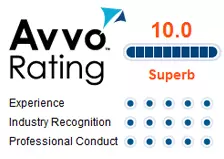On February 16, 2009, the National Safety Council’s Committee on Alcohol and Other Drugs (NSC-COAD) adopted a position statement on source code of breath-alcohol analyzers. This position statement essentially indicates that source code is not relevant to the defense in a drunk driving case involving a breath test. Specifically, their position is:
It is the position of the National Safety Council Committee on Alcohol and Other Drugs that access to the Source Code of the software of an evidential breath-alcohol analyzer is not pertinent, required, or useful for examination or evaluation of the analyzer’s accuracy, scientific reliability, forensic validity, or other relevant characteristics, or of the trustworthiness and reliability of analysis results produced by the analyzer. These matters can be and have been fully assessed and examined by multiple other well established and recognized methods and procedures in common use worldwide; and many other adequate and appropriate means exist to challenge evidential breath-alcohol analysis results.
This “Position Statement” was published in the Journal of Analytical Toxicology with the following editorial statement:
The Journal of Analytical Toxicology received the following Position Statement tilted “Approved Position Statement on Source Code” from the National Safety Council’s Committee on Alcohol and Other Drugs.
One may assume that this position statement will now be cited by prosecutors as part of their attempt to block access to the source code.
This all reminds me of a famous quote: The lady doth protest too much, methinks. Yes, it does seem that CMI (the manufacturer of the Intoxilyzer) and other breath test manufacturers are making too much of releasing source code. Perhaps they know there are problems with their machines. If not, then by contrast why does NPAS, the manufacturer of Michigan’s DataMaster, state this on their web site:
National Patent Analytical Systems, Inc. supports our customers to ensure the breath test evidence is credible, admissible in court and effective to gain convictions. To that end, it is NPAS policy to release the computer source code that drives our instruments, for a nominal fee and with an appropriate agreement. In the unlikely event that an expert finds a problem with our computer code, our engineers will fix the problem so the evidence generated by your DMT is not compromised.
As one of Michigan’s forensic scientists likes to say “science, not secrets.” It seems that the ostensibly scientific National Safety Council’s Committee on Alcohol and Other Drugs would rather it be the other way around.










Comments on this entry are closed.